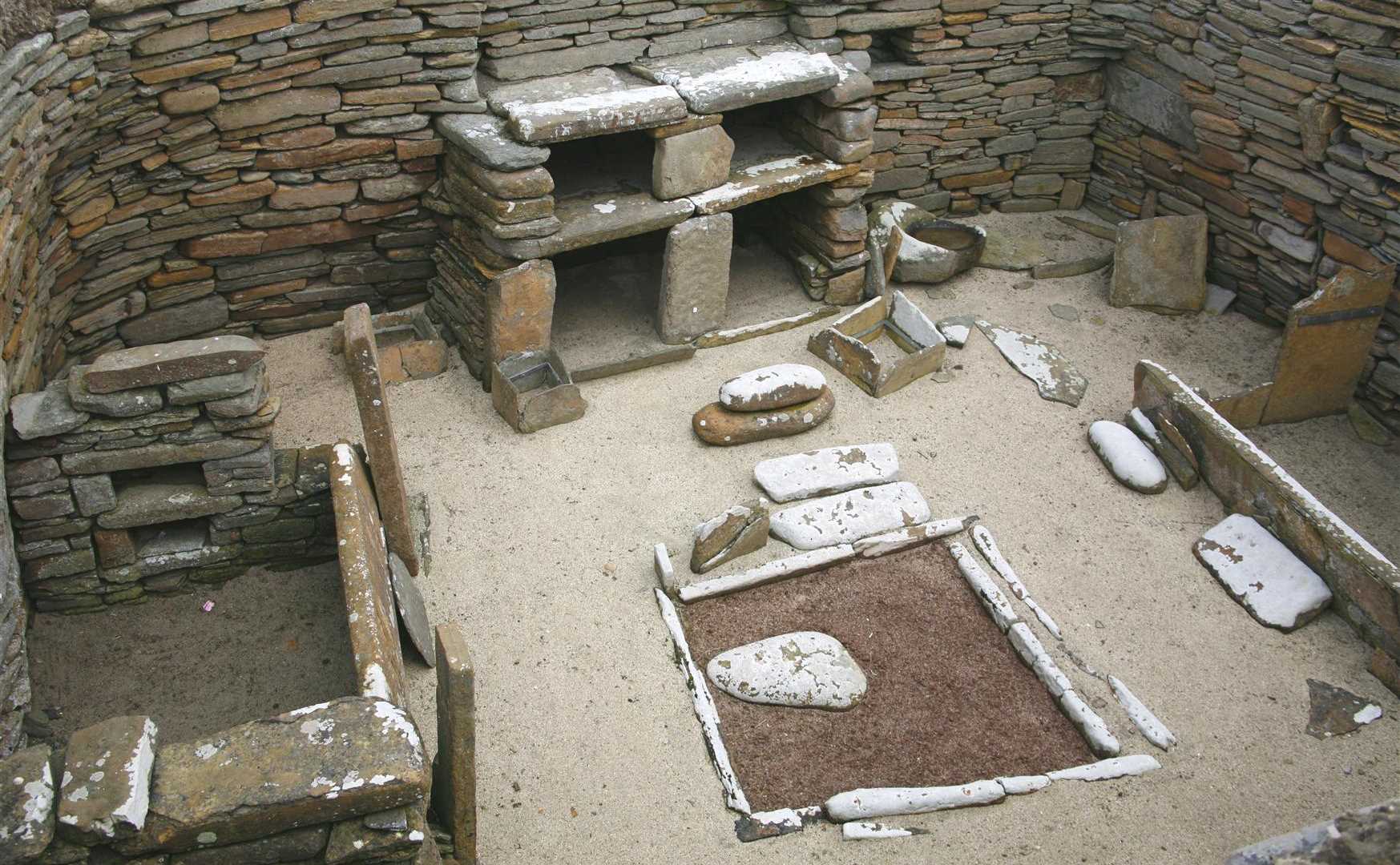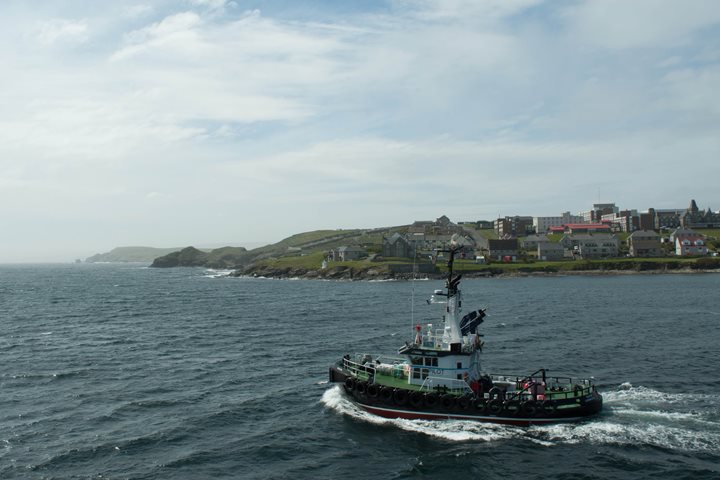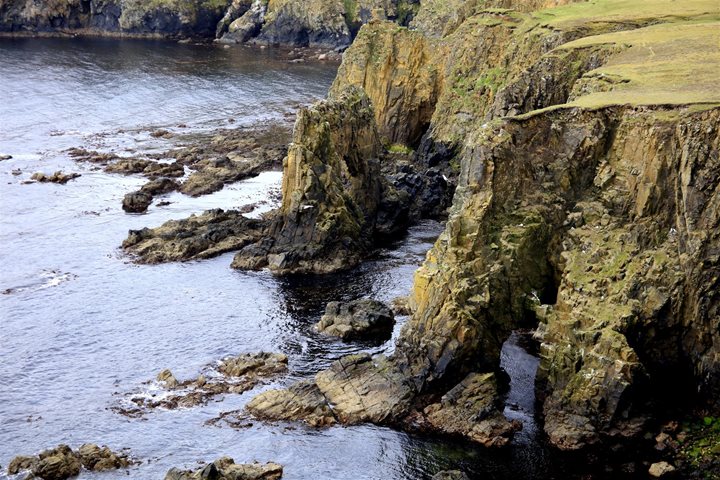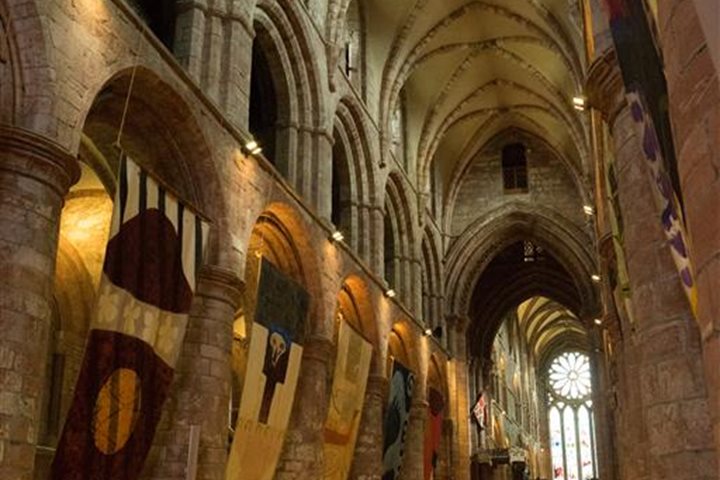The quality of the archaeological sites on Mainland, Orkney has earned it the accolade of being listed as a UNESCO World Heritage site. This is a landscape peppered with prehistoric remains. Its gentle, undulating topography is verdant, a rich grazing resource which was first appreciated by Neolithic farming communities over 6,000 years ago.
Our morning outing focused on the ancient past of this interesting island with visits to the internationally acclaimed sites of Skara Brae and the Ring of Brodgar. In 1850 a storm removed the top section of a sand dune at Scara Brae and revealed the walls of a stone-built village complex which has been dated to 3,100 B.C. For centuries members of an ancient farming community lived here. They grew crops and raised livestock. The site is now a national monument and local guides expounded on the lifestyle of its Neolithic inhabitants. Aptly enough the house structures and their internal features, which include hearths, beds, and dressers, are entirely built of stone and we were afforded excellent views of their interiors. A small museum in the visitor center houses a fine collection of the artifacts recovered during a number of archaeological excavations here, and include pottery, polished stone axes, flint projectile points, and jewellery made from bone and stone. Later in the morning we had the opportunity to walk around the Ring of Brodgar, which was also built by Neolithic people, which consists of an impressive large circle of standing stones surrounded by a ditch.
The afternoon was spent on a variety of options exploring interesting aspects of Mainland’s rich fabric of cultural, architectural, and natural heritage. These included a natural-history focused hike and visits to the famous Italian Chapel, which was built by Italian prisoners of war in the 1940s, and the 5,000-year-old chambered tomb of Maeshowe.
One hundred years ago to the day Ernest Shackleton, Tom Crean, and Frank Worsley arrived at the whaling station at Stromness on South Georgia. Earlier that morning they had heard the whistle to wake the workers. They had just completed a 36 hour marathon traverse of the uncharted interior of the island in order to raise the alarm and save their comrades marooned on Elephant Island 800 miles away. It was almost a further three months before Shackleton managed to reach his men, every single one of which were rescued, an event which brought to a close his ill-fated Imperial TransAntarctic Expedition. We raised a toast to ‘The Boss’ and his gallant crew in the lounge at the beginning of cocktail hour. At the end of Recap a local produced haggis was ‘piped’ in by one of the guests, Mike Mc Connel playing his bagpipes, followed by our historian, David Barnes, reciting the immortal lines of Robert Burns which extol the virtues of this famous national dish. A sweet dram of whiskey was downed to add to the auspiciousness of the occasion.
Following dinner a local traditional band called Hullion engaged us with their consummate instrumental and vocal skills, a fitting end to our explorations of this remarkable island.







